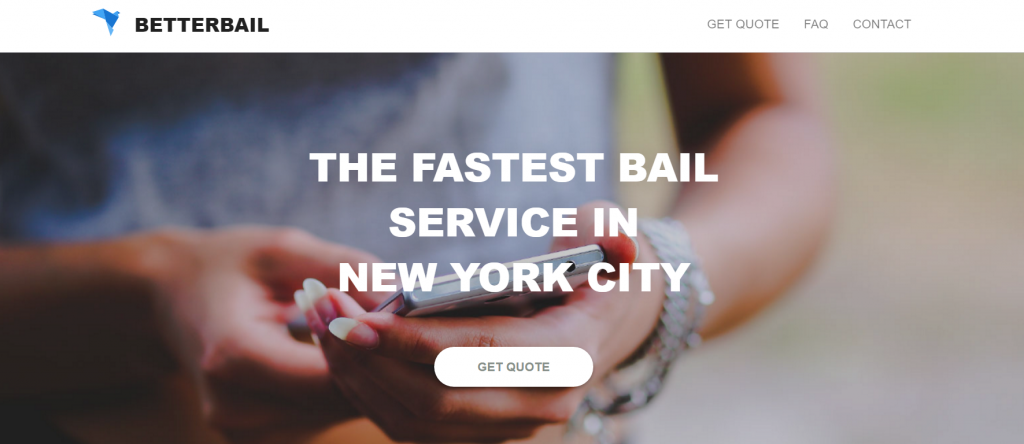
If there is a corner of the legal world where technology has yet to reach, it is the bail bond system. The process of obtaining a bail bond remains very much a brick-and-mortar one. Bail bondsmen typically set up shop close to a courthouse or jail, where family or friends can come in and purchase a bond for some percentage of the full bail amount. In some states, such as New York, bond agents require in-person payments, making it impossible for out-of-state relatives or friends to purchase a bond from afar.
Of course, some argue the bail system should be done away with entirely, pointing to last year’s death of Sandra Bland in a Texas jail after failing to raise $5,000 bail. At least six states have outlawed commercial bail bondsmen. In my state of Massachusetts, bond agents simply became obsolete.
But in New York, where bail bondsmen still operate, a new startup is trying to improve the system through technology, and it hopes eventually to expand its platform to other states. The site, Betterbail, which is still in beta, makes it possible to secure a bail bond in New York City entirely online, sometimes within a matter of minutes.
Its founder, Galen Weber, a former data analyst for the Federal Reserve, was motivated to develop the platform in part by the death of Bland, whose family was geographically distant and struggled to secure the money to purchase a bail bond on her behalf.
“Her story prompted me to study the process of making bail – not so much the legal framework, but the nuts and bolts of how I concretely post bail,” Weber told me. “What I found is that the process is pretty antiquated. There is a lot of consumer fraud, a lot of inefficiency. I was struck by how similar it is to other outdated systems where a tech company comes in and is able to make it better.”
Betterbail takes the process of applying for a bail bond and puts it online. Weber describes it as “like TurboTax for bail bonds.” The platform facilitates the application, approval and payment process for a bond. The actual bonding service is done through a licensed bond agent in New York City with whom Weber has partnered.
Someone wanting to purchase a bond would come to the site and fill out the online forms. The application is delivered electronically to the bond agent to review. If the application is approved, payment is made and the agent physically delivers the bond to the courthouse.
Weber hopes someday to expand the service to other states and eventually go national. He acknowledges that he would face two challenges in scaling the business. One is that bail laws differ by state and sometimes even by city or town. The other is that he would need to establish a network of agents on the ground wherever he would want to operate.
His long-term plan is to build the platform and system to the point where it effectively serves as the top layer and then partner with agents in different locations.
Betterbail is not the first website to offer online bail bond applications. A quick Google search reveals bail-bond application sites operating in Alabama, California, Indiana, New Jersey, Texas and Utah.
I asked Weber about these other sites and how Betterbail differs.
“To me the distinction is: We’re an internet startup providing bail, they’re bond companies who have a website,” he said. “It’s the same distinction you see between a company like Warby Parker and LensCrafters: they both sell glasses online, but the approach to the process is fundamentally different.”
Weber said that he will be building out the platform to incorporate services such as Twilio and Mailgun to provide automated text and email updates, both for the client going through the process of getting a bond and for the defendant and indemnitor over the course of the trial. And rather than require weekly or bi-weekly in-person check-ins, which Weber says are standard in New York, Betterbail lets clients check-in using their mobile phones, with geo-tagged photos.
“I think that explains why we don’t view those sites that already do exist as significantly affecting our capacity to expand,” Weber said. “In New York, our added value is obvious enough to be captured in one sentence: we have the full process on the web, our competitors don’t. In the other states it’s less clear on the face of it, but I think a consumer will still be able to detect that we’re leveraging additional technologies to make their experience easier.”
 Robert Ambrogi Blog
Robert Ambrogi Blog